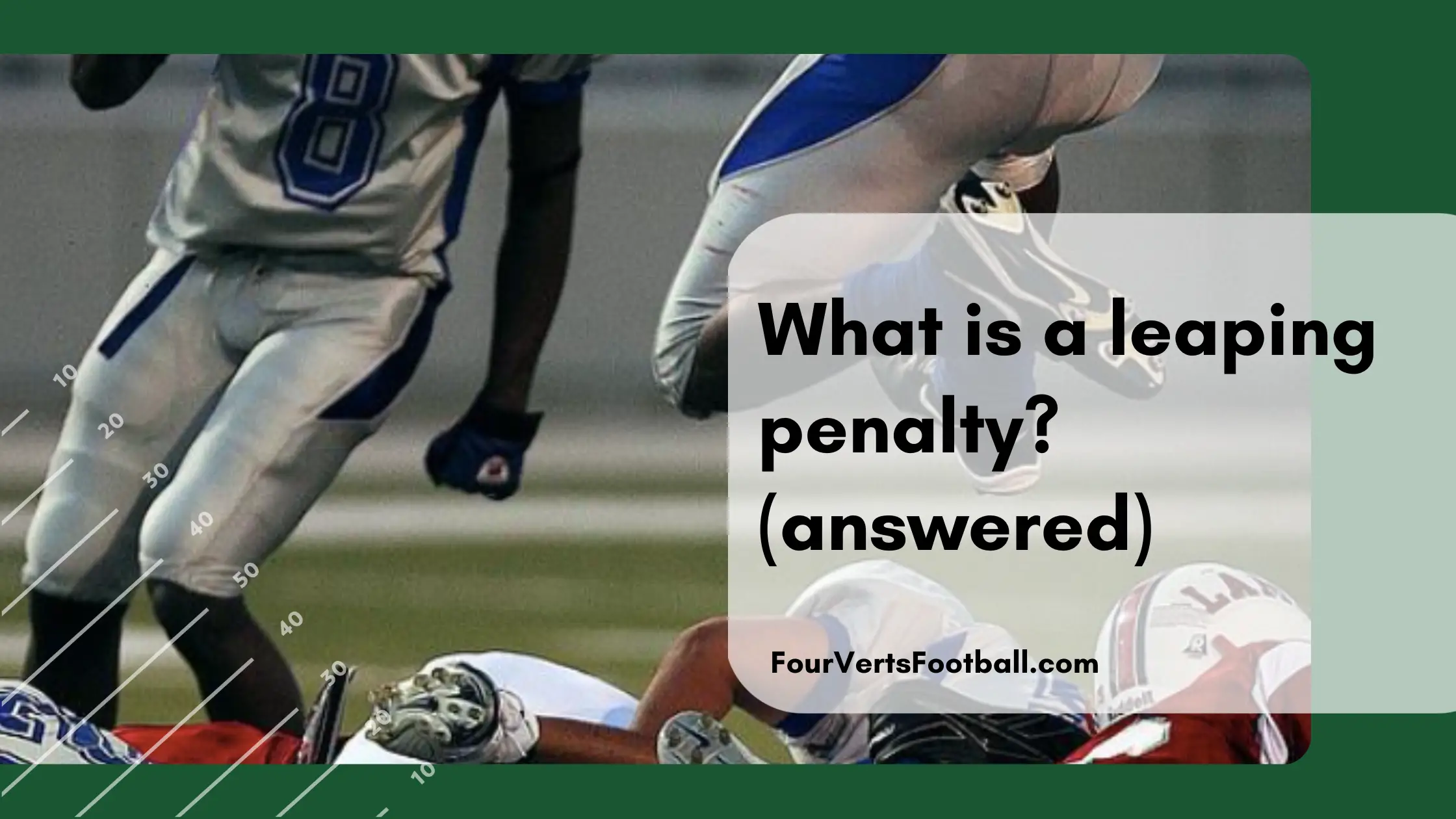A leaping penalty in football is called when a defensive player illegally jumps over the top of the offensive lineman in order to block a field goal or punt attempt. This results in a fifteen-yard penalty and an automatic first down.
Leaping penalties are called differently in the NFL and the NCAA. The NFL is more lenient and allows players to run forward and leap so long as they do not contact opponents or cross the line of scrimmage.
The NCAA only prohibits players to leap through or over the gap between players.
To learn about other penalties aside from tripping see our explanation of targetting in NFL and college football or see our guide to spear tackles in football.
Leaping penalties in the NFL
A leaping penalty in the NFL is going to result in an unsportsmanlike conduct penalty. This means there will be a gain of fifteen yards for the offense and an automatic first down.
A leaping penalty will be called in the NFL if any player in an obvious attempt to block the kick jumps over the offensive line and crosses the line of scrimmage.
Regardless of if the leaping player lands on anyone or avoids contact while jumping across the line of scrimmage a leaping penalty will still be called.
A leaping penalty will not be called if the player was stationary and within one yard of the line of scrimmage or if the player does not contact anyone and does not cross the line of scrimmage.
Leaping penalties in the NCAA
Leaping penalties in college football are quite similar to the NFL though there are a few differences.
Similar to the NFL committing a leaping penalty is going to result in a fifteen yard penalty and an automatic first down.
The NCAA rulebook states that this penalty will be called if a defensive player jumps into the area above an offensive lineman. This makes jumping over an opponent on a field goal or punt illegal.
This penalty will not be called if a player jumps straight up into the air in order to block the kick or punt.
A leaping penalty will also not be called if the defensive player jumps through or over the gap between players.
Keep in mind leaping penalties are only called from time to time similar to sideline warnings in college football.
Why are leaping penalties illegal?
The reason the defensive players are not able to jump over the line on field goals is due to player safety.
When a player looks to hurdle over the line he is going to put multiple players in danger. If the defensive player does not clear the line he will fall from a high height and potentially injure himself.
Additionally, the offensive lineman blocking for the field goal or punt are also put in danger. If a player takes a running start and jumps he is going to be coming in with some serious force.
If this player then lands directly on top of one of these linemen it can be very painful.
This is why the NCAA rulebook specifically mentions rules regarding jumping in the area above an offensive player.
Previously the NCAA and NFL had leaping penalty rules that allowed hurdling the line so long as no player was contacted.
When this happened the play was safe but many players attempted and failed leaps over the line meaning the danger was still present.
The change in these rules had made leaping to block field goals nearly impossible.
That is all on the leaping penalty in football if you want to learn more see our guides to roughing the kicker or hurdles in football.

